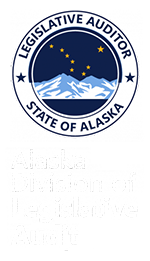| 5.5.3 | The Department should support targeted case management services for high-utilizers of the psychiatric emergency system in order to divert these consumers from costly acute care and ensure delivery of services oriented to prevention. |
| 5.5.7 | The State should develop a coordinated Forensic Services unit to oversee forensic evaluations and service coordination, and to minimize costs incurred by the Alaska Court System, Department of Corrections, and the Department of Health and Social Services. |
| 5.5.8 | The State should reform Title 12 to distinguish between violent and non-violent misdemeanor offences in the code governing forensic psychiatric evaluations for misdemeanor offenders. |
| 9.5.4 | The Department should increase its ability to monitor, track, and limit the administrative costs incurred from the grants and contracts management process. |
| 9.5.5 | The Department should consider limiting administrative costs during the contracting process to 7-10% of the total contract cost. |
| 9.5.6 | The Department should also consider further monitoring grant and contract budgets to ensure costs are properly allocated across each of the major cost or functional areas. |
| 10.3.1 | Based on current Division spending for acute and sub-acute behavioral health services, it is estimated that the Department could save at least $2 million if a tribal provider established an inpatient psychiatric unit. |
| 13.2.2 | The Department should engage Medicaid recipients in helping to identify fraud by providing them with Explanation of Benefits (EOB) statements. |
| 13.2.3 | The State should consider increasing criminal penalties for Medicaid fraud and assessing interest and additional financial penalties on individuals convicted of Medicaid fraud. |
| 13.2.4 | The State should consider strengthening its seizure laws and consider bonding requirements for high-risk providers. |
| 13.2.5 | The State should create a robust prescription drug control program, including financial support for and upgrade of the Prescription Drug Database to real-time functionality and removing statutory barriers to state agency access to the database to facilitate fraud identification and drug abuse prevention |
| 13.3.1 | Based on CMS estimates of improper payment within Medicaid programs nationwide, PCG projects that the State could generate another $5-10 million in combined cost savings and avoidance through improved Medicaid program integrity efforts. |
| 13.3.2 | Assuming the rate of improper payment for behavioral health services is similar to the level of estimated improper payment in the Medicaid program as a whole, then improved program integrity activities could generate approximately $1 million in additional combined cost savings and avoidance for behavioral health services. |

